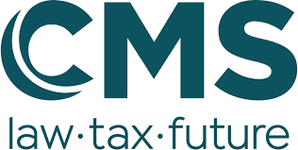Since its entry into force on 1 July 2023, the Framework Agreement on Cross-Border Telework has garnered support from numerous countries, reflecting a growing recognition of the importance of facilitating cross-border telework in an increasingly digital world. Its signatories (among others) include Belgium, the Czech Republic, Germany, Spain, France, Croatia, and Austria, and their number continues to expand. The Framework Agreement has also applied in Italy since January 2024, in Lithuania since May 2024, and in Ireland since June 2024.
What has the Framework Agreement brought, and whom does it cover?
This multilateral agreement is applicable in cases where an employer is based in one country and an employee performs telework in another country, and both these countries are signatories to the Framework Agreement.
The Framework Agreement provides an option for employees to remain covered by social security in the employer's country if the conditions set out in the agreement are met, subject to an application. These rules apply only to employees who perform part of their work, ranging from 25 percent to 49.9 percent of their total working hours, in their state of residence by means of information technology, and the rest in the state of the employer's registered office.
The Framework Agreement does not apply to self-employed persons, employees engaged in other gainful employment in another state, or employees who usually carry out an activity other than cross-border telework in their state of residence.
What is the procedure?
Slovak employers must address an application to the Ministry of Labour, Social Affairs and Family of the Slovak Republic. The applicability of Slovak social security legislation can be requested for a maximum of three years, with the possibility of reapplying after that period. The Ministry will inform the competent authority in the other signatory state concerned. If that authority grants the request, the Ministry will approve the exemption, and inform the employee, the Social Insurance Office and the Health Care Supervisory Authority in writing. The employee may then apply to the Social Insurance Office for issue of a PD A1 form.
Possibility of granting an exemption retrospectively
The Framework Agreement allows retroactive exemptions. This enables employers and employees to regularise their status even if they did not initially apply for an exemption. This retrospective aspect provides a significant grace period, encourages compliance, and reduces the administrative burden for those who may not have been aware of the new regulations when they came into effect. The key requirement is that the request for exemption must be submitted by June 30, 2024.
Such an additional application may be submitted if the retroactive period does not exceed 12 months, and social security contributions have been duly paid for the employee in the signatory state in which the employer has its registered office or place of business, or the employee was otherwise covered by the social security system of the signatory state during that period.
Examples
Since theory is better understood when illustrated by concrete examples, a few scenarios are listed below:
Scenario 1
An employee is employed by an Austrian company and is teleworking full-time from home in Slovakia. As the employee teleworks from his country of residence for more than 50 percent of his total working hours, he is not covered by the Framework Agreement and must therefore be covered by social security in his country of residence.
Scenario 2
An employee is employed by an Austrian company and is teleworking part-time for 40% of his total working hours from home in Slovakia. As the employee teleworks from his country of residence for less than 50 percent of his total working hours, he is covered by the Framework Agreement and can apply for the exemption to be covered by social security in the country of the employer’s registered office. The application must be addressed to the competent authority in Austria.
Scenario 3
An employee is employed by a Czech company and is teleworking part-time for 20% of his total working hours from home in Slovakia. As the employee teleworks from his country of residence for less than 25 percent of his total working hours, he is not covered by the Framework Agreement and cannot request the exemption; therefore, he is subject to social security in the country where his employer is based.
Scenario 4
If an employee is teleworking for a Slovak employer for 45 percent of his total working hours from home in a country that has not signed the Framework Agreement, he is not covered by the Framework Agreement, and in general, he must be covered by social security in his country of residence. However, it is possible to apply for an exemption under Article 16 of Regulation (EC) 987/2009 on the coordination of social security systems, which could allow him to be insured in the country of the employer. Such requests must be approved by both states in question.
Conclusion
The Framework Agreement for cross-border telework represents a forward-thinking approach to modern employment practices, recognising the realities of remote work. This agreement not only simplifies administrative processes but also fosters a more flexible and dynamic working environment in an increasingly interconnected world.
Finally, it should be noted that this agreement focuses exclusively on the issue of social security. It does not address questions of the application of tax law and the determination of the state in which income tax is to be paid on behalf of the employee.
This article has been brought to you
by CMS Slovakia.
JUDr. Natália Jánošková
Senior Associate
T +421 2 3214 1427
M +421 911 179 036
F +421 2 3214 1411
E natalia.janoskova@cms-rrh.com




